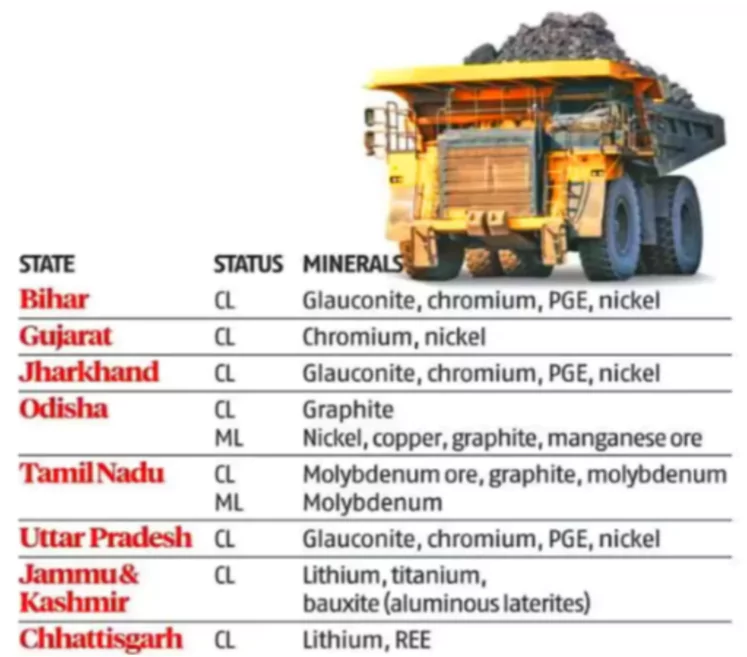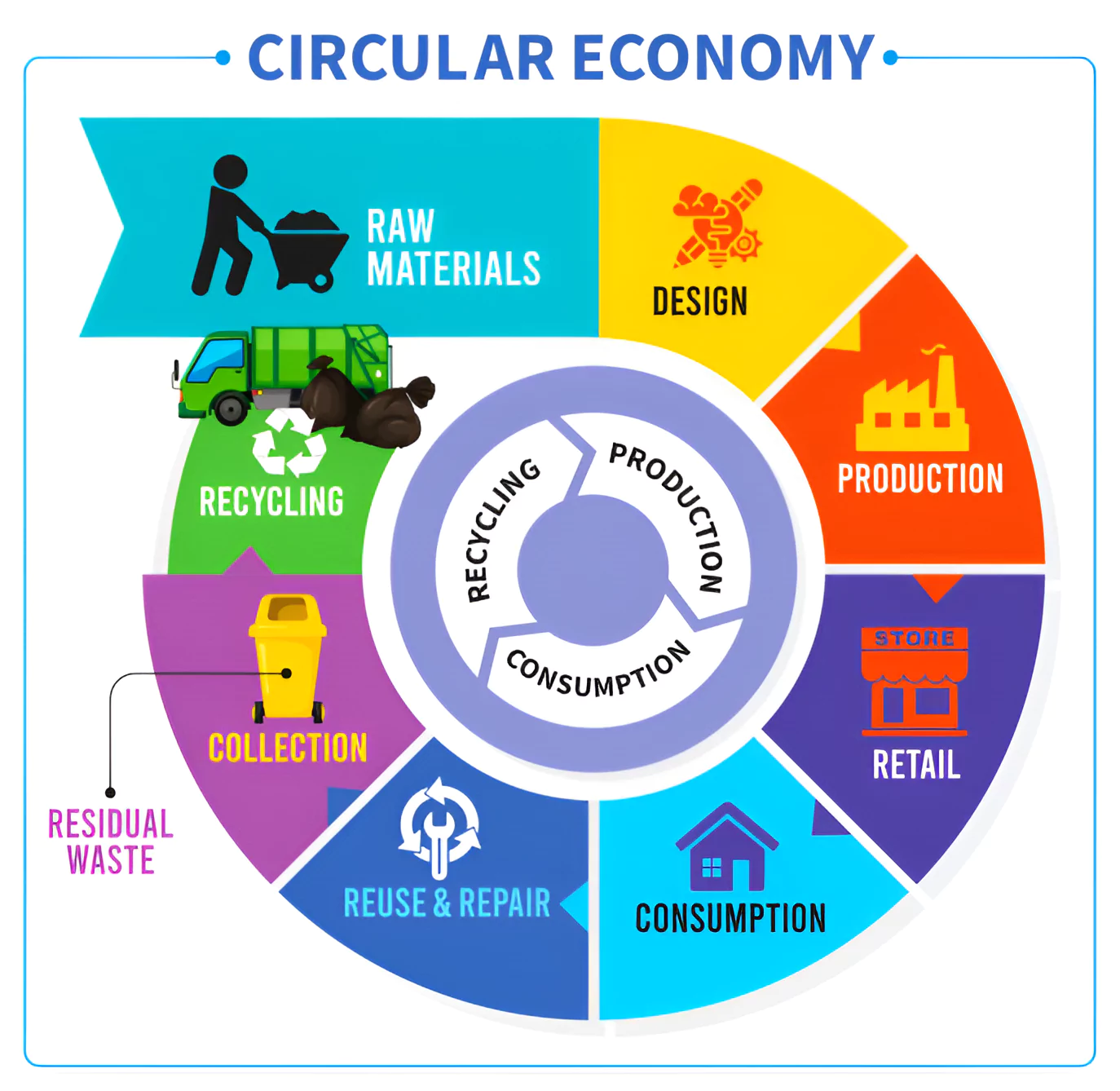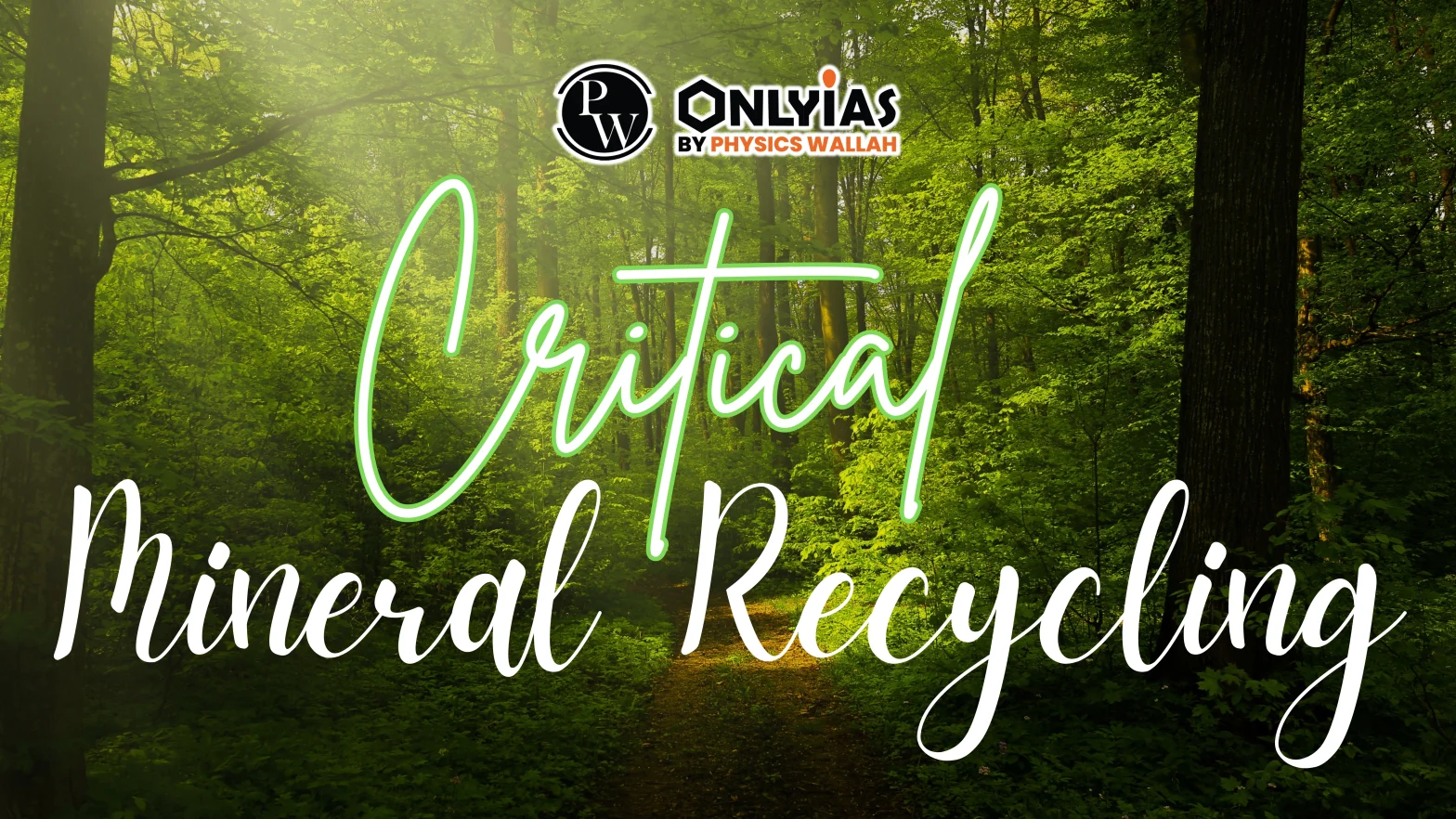The Ministry of Mines is designing a Production Linked Incentive (PLI) scheme to promote the recycling of critical minerals in India.
Status of the PLI scheme

- The PLI scheme is yet to be finalized.
What are critical minerals?
- Critical minerals are the minerals essential for economic growth and national security.
- If these minerals aren’t available or are concentrated in a few places, it can create vulnerabilities in supply chains.
Enroll now for UPSC Online Course
Significance of critical minerals for India
-
Economic Growth and Industrial Development
- Resource Base: Critical minerals are vital raw materials for industries like electronics, automotive, aerospace, and renewable energy.
- Manufacturing: They are essential in making semiconductors, batteries, and magnets.
-
National Security and Strategic Importance
- Defense Sector: Critical minerals are indispensable for defense technologies such as missile guidance systems and radar.
- Reducing Dependence: Developing local sources of these minerals can reduce India’s dependence on imports from politically sensitive regions.
-
Transition to Clean Energy
- Renewable Energy: Minerals like lithium, cobalt, and rare earth elements (REEs) are crucial for EV batteries and renewable energy storage.
- Access to these minerals helps India reduce carbon emissions and adopt cleaner energy sources.
-
Technological Advancements
- Innovation: Critical minerals drive innovations in technologies like 5G networks and advanced medical devices.
- A strong supply chain promotes research and development in cutting-edge technologies.
-
Job Creation and Skill Development
- Mining and Processing: Developing critical mineral resources creates jobs and enhances skills.
- This includes both mining operations and processing facilities.
About PLI Scheme for Recycling Critical Minerals

- The PLI scheme will focus on recycling e-waste, also known as “urban mining,” to recover important minerals.
- The proposed PLI scheme aligns with recommendations from NITI Aayog.
- The rules complement the Battery Waste Management Rules (BWMR), 2022.
- BWMR, 2022 requires phased recycling of used EV lithium-ion batteries.
- Recycling of these batteries will start gradually from 2026.
- Objective: To foster a circular economy and strengthen domestic supply chains.
- Key minerals to be targeted include lithium, copper, cobalt, graphite, chromium, and silicon.
- These minerals are essential for:
- Clean energy technologies like solar PV modules and wind turbines
- Energy storage systems and electric vehicles (EVs)
- Consumer electronics
Benefits of Recycling minerals
- Reducing Mining Needs: Research shows that effectively recycling critical minerals can greatly reduce the need for new mining activities.
- Environmental Conservation: Recycling helps conserve the environment and avoid the social and economic impacts of opening new mines.
Check Out UPSC Modules From PW Store
Challenges of PLI Scheme for Recycling Critical Minerals
-
Disagreements on Beneficiaries
- High-Purity Extraction: Some recyclers believe only those who extract high-purity critical minerals, similar to virgin ores, should be rewarded by the scheme.
- Black Mass Production: Others argue the scheme should also support the production of “black mass,” a less pure mixture of minerals from shredded e-waste.
- Most Indian recyclers currently can’t extract battery-grade minerals from black mass.
-
India’s Growing E-Waste Problem
- Increase in E-Waste: The amount of e-waste in India is increasing rapidly due to the growth of solar panels, wind turbines, and electric vehicles (EVs).
- Projections: By 2030, India is expected to have:
- 340,000 tonnes of solar panel waste (up from 100,000 tonnes in 2023)
- 500,000 tonnes of used EV batteries needing recycling
Circular Economy:
- This economy promotes a market that encourage to reuse products rather than discarding them.
- It aims to minimize waste generation.
- All forms of waste such as clothes, scrap metal and obsolete electronics are reintroduced in the economic cycle which is used again more effectively.
|
![]() 3 Jul 2024
3 Jul 2024


